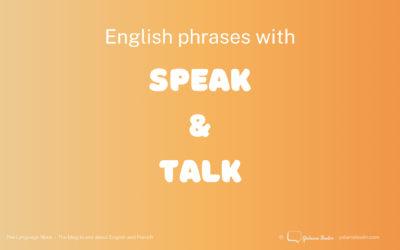Learning a foreign language is fun! Yes, of course, but it’s not because it’s fun that it’s funny. Not sure you agree with this? Well, let’s have a closer look at what these two words mean and what the difference is.
Funny is an adjective ; in other words, it is a describing word. If something or someone is funny, it means they make you laugh. Here are a few examples of sentences with the word funny:
- My friend is very funny, he always makes me laugh.
- That was a funny joke. Everybody laughed.
- I like that film, it’s funny.
Careful though, funny can also mean strange, odd, peculiar:
- Have you seen these people over there? They look funny.
- That’s a funny reaction. I don’t understand it.
Usually the context helps tell the difference between the two meanings of the word. Yet if it is not clear and someone is confused, you may hear them ask “What do you mean, funny ha ha or funny peculiar?”, or alternatively, “You mean funny ha ha or funny strange?”.
Fun, on the other hand, is an uncountable noun. Fun conveys a meaning similar to the idea of enjoyment. If you say that your friend is fun, it means your friend is good company, that you enjoy being with him or her. If you say that something is fun, it means you enjoy it, it is nice and pleasant. For example:
- I went to a party last night and had a lot of fun; I enjoyed myself very much.
- My friend is so much fun, I love spending time with him.
Sometimes, in everyday English, people use fun like an adjective. They may say things like:
- It was a fun thing to do (meaning it was an enjoyable thing to do).
Of course, you may know people who are both fun and funny. In that case, no doubt they’re friends you enjoy spending time with! 🙂
So, now the difference between the words fun and funny is clear and you know when to use these words. Practice using them both and have fun! 😉





This is something that young children find difficult to work out when they are learning to speak English as a first language. If asked whether they had a good time at a party they may well reply “It was funny”
Thanks for pointing this out Geoff! It can be very reassuring for learners of English as a foreign language to realise that the difficulties they encounter are not just “because of them” but that English natives may also have the same issues. 🙂